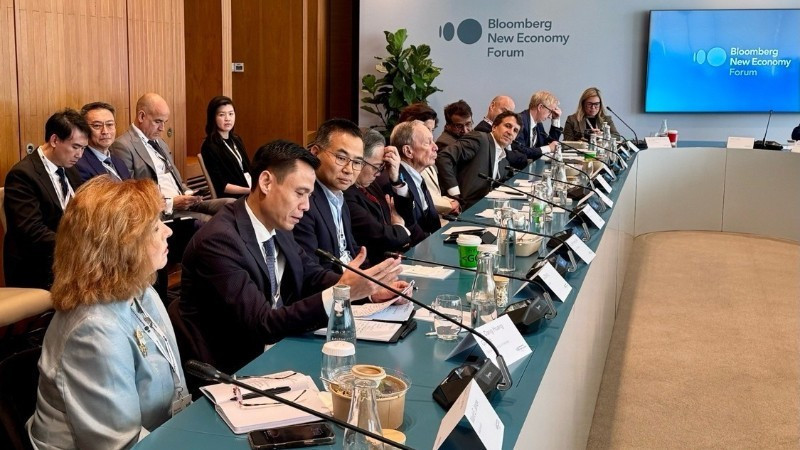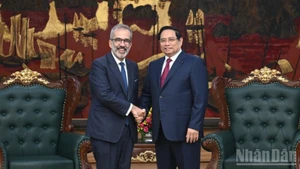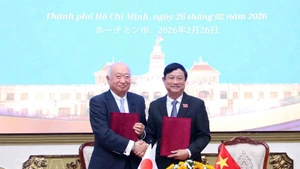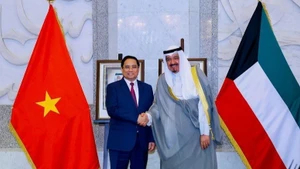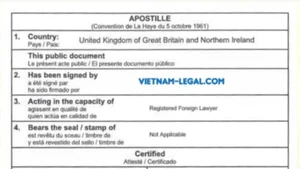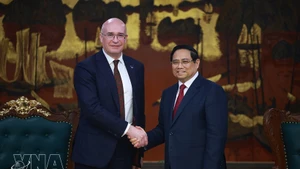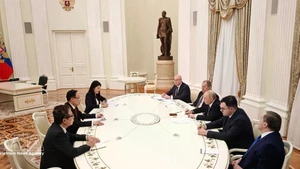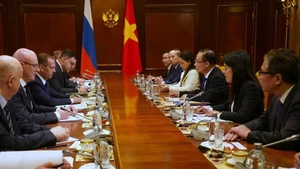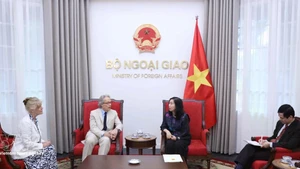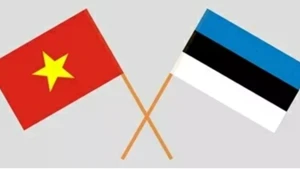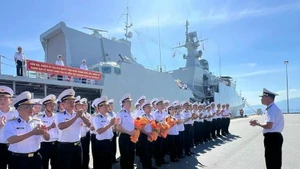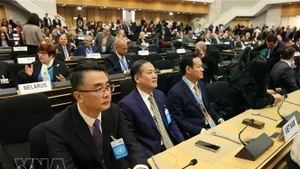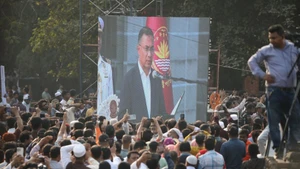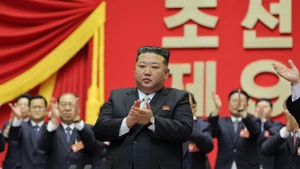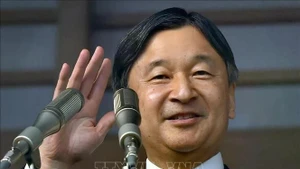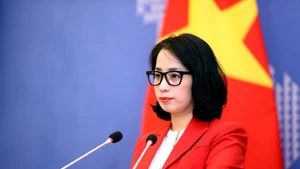He made the remarks while attending the high-level closed-door dialogue on trade, held as part of the Bloomberg New Economy Forum (NEF), taking place on November 19-21 in Singapore.
He emphasised that in a rapidly changing and complex world, Viet Nam prioritises enhancing economic resilience and establishing a new growth model based on science, technology, innovation and digital transformation.
Within the forum framework, the official met Costa Rican Minister of Foreign Trade Manuel Tovar Rivera, Bloomberg founder Michael Bloomberg, and Managing Director for APAC Media Sales & Marketing at Bloomberg Media Sunita Rajan, to advance bilateral cooperation and discuss issues of mutual interest.
Giang also held meetings with Singapore’s Deputy Prime Minister Gan Kim Yong and Permanent Secretary of the Ministry of Foreign Affairs Albert Chua, and paid courtesy calls on Desmond Choo, Minister of State for Defence and a member of the People’s Action Party (PAP), as well as Gan Siow Huang, Minister of State for Foreign Affairs and Trade & Industry.
In these meetings, the Singaporean side underscored the importance they attach to the newly established Comprehensive Strategic Partnership between the two countries, affirming that Singapore will work closely with Viet Nam to effectively implement the 2025–2030 Action Programme, signed on the occasion of the annual meeting between Vietnamese Prime Minister Pham Minh Chinh and his Singaporean counterpart Lawrence Wong at the 47th ASEAN Summit.
Both sides agreed to continue prioritising economic, trade and investment cooperation, particularly expanding Singapore's development footprint in Viet Nam through upgrading the second-generation Viet Nam–Singapore Industrial Park (VSIP) network to be smarter and greener; and accelerating the implementation of cooperation projects in emerging sectors such as wind power, nuclear energy, carbon credits, science and technology and digital transformation, contributing to realising the net-zero emissions targets of both governments.
Singapore pledged continued support for Viet Nam in training high-quality human resources and expanding the Singapore Cooperation Programme to other localities, beginning with Hai Phong.
Regarding party-to-party cooperation, the two sides discussed steps to establish a strategic exchange mechanism between the Communist Party of Viet Nam and the PAP; and to promote the sharing of experience and theory, cadre work, public mobilisation, ideology education and anti-corruption. Singapore also signalled its readiness to assist Viet Nam in building capacity for the effective operation of its two-tier local government system.
On multilateral cooperation, both countries agreed to continue close consultations and coordination in advancing the ASEAN Community Vision 2045, strengthening the bloc’s unity, centrality and common stance on strategic regional issues, including the East Sea. They also underlined the importance of sustainable development in sub-regions such as the Mekong Sub-region, including through bilateral or trilateral cooperation to enhance maritime, rail, highway and aviation connectivity. The two sides committed to supporting each other as Viet Nam hosts APEC and Singapore assumes the ASEAN Chairmanship in 2027.
At the forum, themed “Thriving in an Age of Extremes," delegates discussed global growth prospects and assessed shifts in international trade and investment flows amid geopolitical competition, financial and monetary instability and rising public debt. Leaders and leading economists emphasised that small economies should remain open, further diversify partnerships through new free trade agreements, and seize opportunities presented by technological revolutions, especially in AI, biotechnology and new energy.
